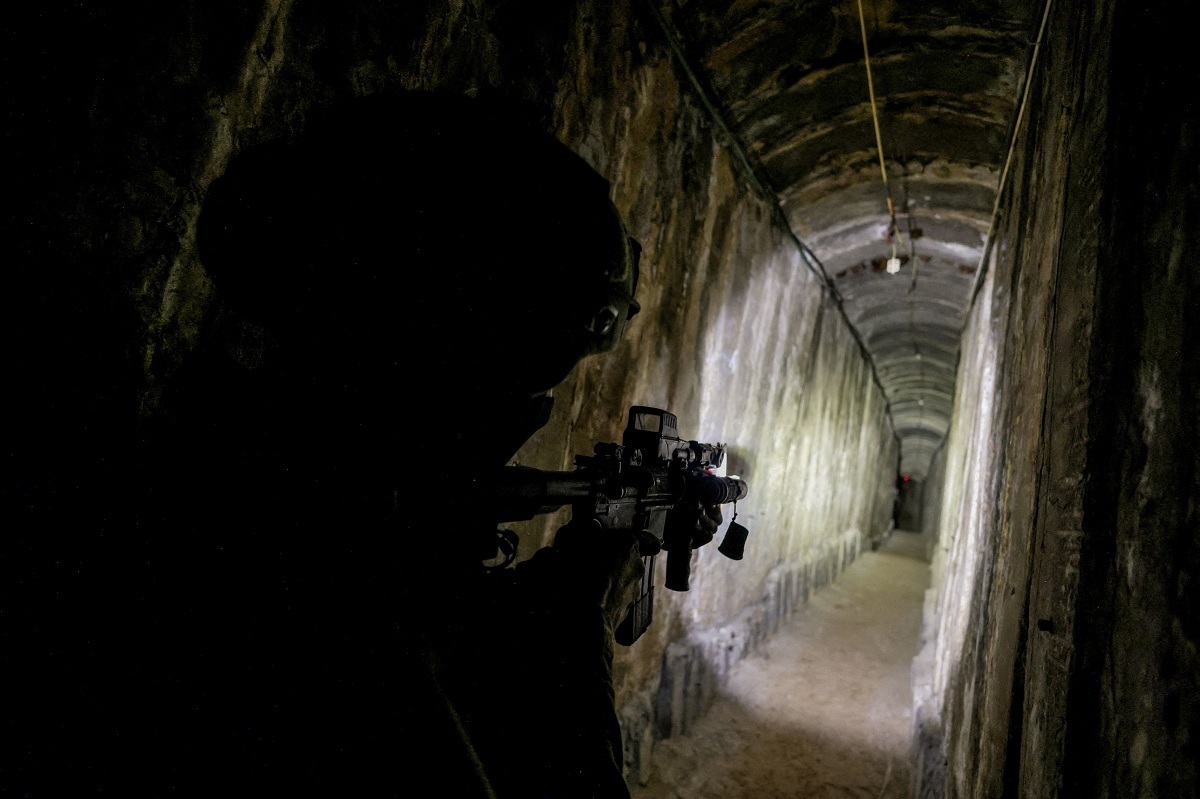Rafah Tunnels: Israel's Nightmare and the Dead End of the Gaza Ceasefire
TEHRAN (Defapress) - Despite the Hamas-Israeli ceasefire agreement, the war in southern Gaza and deep in the ruins of Rafah continues, and a large number of Hamas fighters are still present in the underground tunnels of the "Yellow Zone" occupied by the Zionist regime.

The presence of Hamas fighters in these tunnels has now become a serious problem for the Israeli army, and international mediators are concerned that this issue will cause the ceasefire agreement to collapse.
Independent Hamas units, whose exact numbers and coordinates are unknown to the Zionist regime, have fortified their positions in underground tunnels since the division of Gaza into two zones, the so-called "Yellow Zone," by a line called "Green Zone." While Israel occupies eastern Gaza, Hamas has rebuilt itself in western Gaza.
Benjamin Netanyahu has announced that he will not allow Hamas forces to leave the tunnels and join areas under Hamas control. Hamas, in turn, has announced that its forces will never surrender or hand over their weapons.
The Trump administration has been pressuring Israel to reach a practical solution. According to two Israeli sources, Jared Kushner, Trump's son-in-law and US envoy, has raised the issue with Netanyahu in recent meetings.
The second phase of the ceasefire involves the deployment of a peacekeeping force in Gaza, the disarmament of Hamas, and the withdrawal of the occupying forces, each of which requires difficult negotiations with different countries. Meanwhile, the presence of Hamas forces in the Gaza tunnels is another piece of this complex diplomatic puzzle.
In recent days, the idea of deporting Hamas forces to a third country, Turkey, was raised, but it was immediately shelved. Netanyahu's office has repeatedly denied reports in recent weeks about the release of what Israel calls "terrorist cells." A senior Israeli official said on Tuesday: "The prime minister has not given the Americans a commitment to the release of the Rafah prisoners, and contrary to reports, there is no agreed solution."
For the occupying regime, the underground Hamas cells are like a time bomb and threaten the ceasefire. Hamas fighters have launched attacks on the occupying forces in recent weeks in underground tunnels. Hamas said it had lost contact with the units after the incident.
On October 19, after two Israeli soldiers were killed in Rafah, Israel launched a massive offensive, killing at least 44 Palestinians. A week later, another Israeli soldier was killed in Rafah, and Israel responded by killing more than 100 Palestinians, including dozens of children.
Netanyahu has come under pressure from the Israeli right to oppose any deal that would allow Hamas forces safe passage into Hamas-controlled areas. Former Israeli Defense Minister Avigdor Lieberman wrote on X: “For terrorists who kill IDF soldiers after a ceasefire is declared, there are only two options: surrender and prison, or death.”
On Sunday, Hamas' military wing said in a statement: "We will never surrender, and we call on the mediators to fulfill their responsibilities. They must find a solution to ensure the continuation of the ceasefire."
